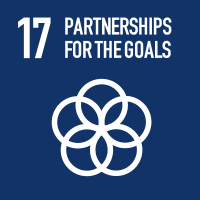Studying at the University of Verona
Here you can find information on the organisational aspects of the Programme, lecture timetables, learning activities and useful contact details for your time at the University, from enrolment to graduation.
Type D and Type F activities
This information is intended exclusively for students already enrolled in this course.If you are a new student interested in enrolling, you can find information about the course of study on the course page:
Laurea in Scienze della comunicazione - Enrollment from 2025/2026Management Information Systems (2024/2025)
Teaching code
4S008046
Academic staff
Coordinator
Credits
6
Language
Italian
Scientific Disciplinary Sector (SSD)
SECS-P/08 - MANAGEMENT
Period
CuCi 1 A, CuCi 1 B
Courses Single
Authorized
Learning objectives
The course aims to increase the knowledge about organizational studies and management information systems, focusing on information, processes and the value generated by the organizational structure. The objective is to provide the student with the tools to verify and evaluate the organizational structures, business processes and the specific characteristics of the information. For this reason, it will analyze the business problems, and then defines the structures and tools for coordination. We will also analyze the Enterprise Resource Planning (ERP), and then analyze and evaluate the characteristics of Web Information Systems and more generally the e-Business platforms, for the management and sharing of information on the Web. In the final phase of the course, we will they will take into consideration decision-making processes and Decision Suppor Systems applications, as well as Business Intelligence and Customer Relationship Management (CRM) tools, for the assessment of company management (management control) and for the best definition of future scenarios (planning strategic).
Prerequisites and basic notions
There are no prerequisites.
Program
The company’s concept
Good, services, symbols and experiences
The company’s functions and goals
The entrepreneur and the birth of the company
The factors of production
The function of production and the choices of integration and decentralization of production
The company and its environment
Corporate strategies
Business strategies
Vision, mission and values
Business models
Bibliography
Didactic methods
Lessons will be given in Italian, using an experiential learning approach and interactive teaching. The teaching methods include face-to-face lessons and active teaching such as movie showing, case studies, group projects in the classroom and the participation of scholars, entrepreneurs, managers or business experts. Some Moodle tools will be deployed to perform distance-learning activities.
Learning assessment procedures
The examination is written. The test covers the various topics in the program and is divided into two parts. The first part includes five multiple-choice quizzes. These questions are aimed at assessing the knowledge of basic notions of the discipline as well as the ability to effectively use the company language.
The second part includes five open questions to be answered in a dedicated space. The questions are aimed at assessing the general vision of the discipline, the deepening of the topics and applying the concepts to business management.
Evaluation criteria
The questions are structured in such a way as to verify the level of knowledge of business management topics. At the same time, they are studied in order to test the skills of interpretation of the main problems related to problem-solving in the business management field.
Criteria for the composition of the final grade
The written test is passed with a minimum score of 18/30 that is obtained as follows:
- 3 out of 5 points in the multiple choice quiz,
- 15 points out of 25 in the further four questions.
Exam language
Italiano


